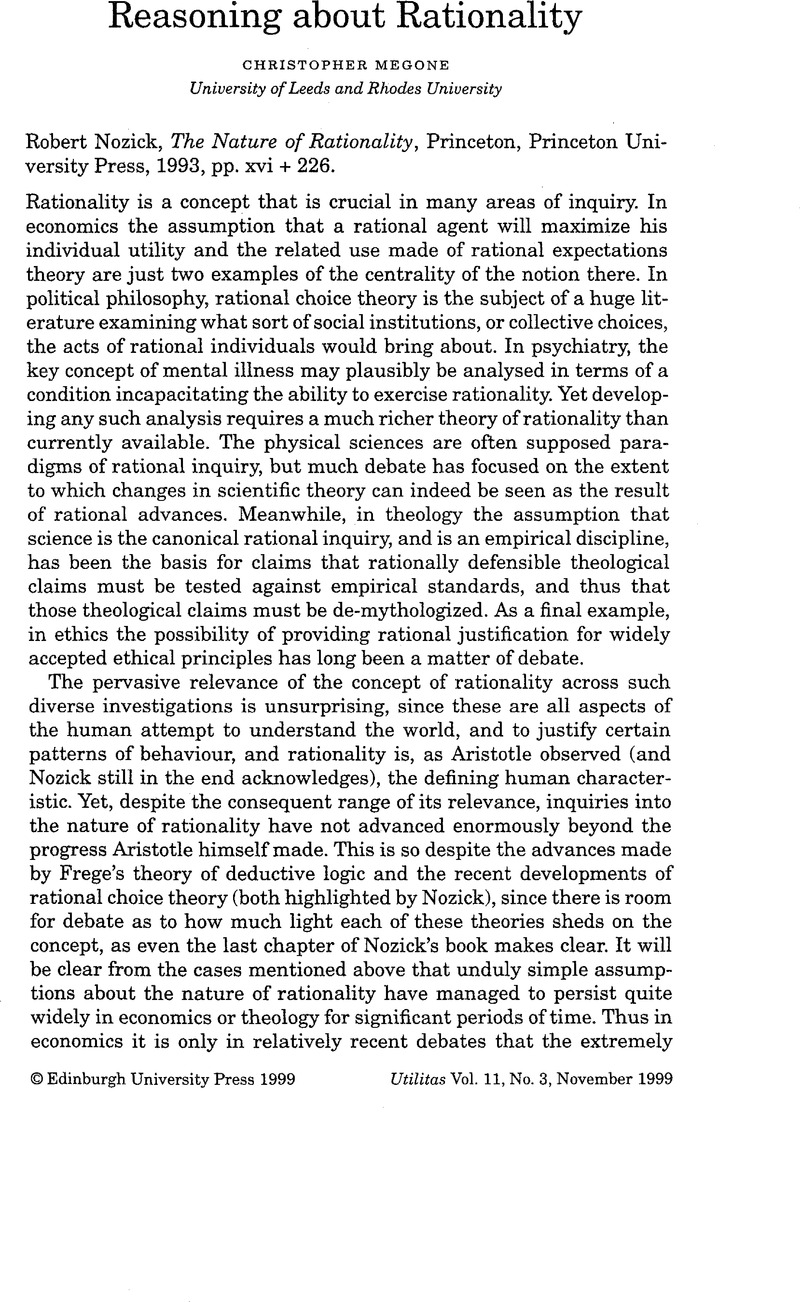No CrossRef data available.
Article contents
Reasoning about Rationality
Published online by Cambridge University Press: 26 January 2009
Abstract

- Type
- Review Article
- Information
- Copyright
- Copyright © Cambridge University Press 1999
References
1 All page references are to Nozick's book, unless otherwise indicated.
2 Nozick, R., Anarchy, State, and Utopia, New York, 1974Google Scholar.
3 See Aristotle, , Nicomachean Ethics, I. 7Google Scholar and Physics, II.
4 Aristotle, , Physics, II. 8–9Google Scholar and Politics I. 2. See also Megone, C. B., ‘Aristotle on Essentialism and Natural Kinds: Physics II. 1’, Revue de Philosophe Ancienne, vi (1988)Google Scholar.
5 On pp. 134 f. Nozick asserts: ‘On a causal-instrumental account of rationality, our standards of rationality must depend upon our view of the character of this world and upon our view of what we are like, with our capacities, powers, disabilities, and weaknesses.’ But this is not to make use of our experience of human behaviour in the way indicated in the text above. Here Nozick simply means that to assess what act is likely to produce the most utility (and thus is rational) we need to consider facts about the way the world is.
6 Hare, R. M., Moral Thinking, Oxford, 1981CrossRefGoogle Scholar.
7 He does, however, go on to consider some arguments favouring instrumental rationality on p. 134.
8 The Aristotelian doctrine of four explanatory structures; see Aristotle, , Physics, II. 3Google Scholar.
9 I am grateful to a reading group at the University of Leeds and to Marius Vermaak for helpful discussions in preparing this article.


